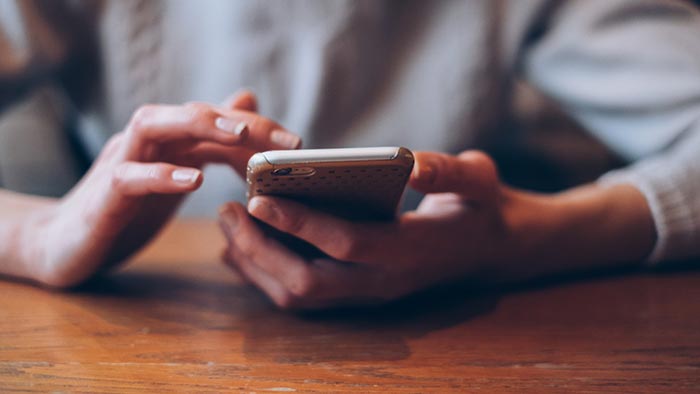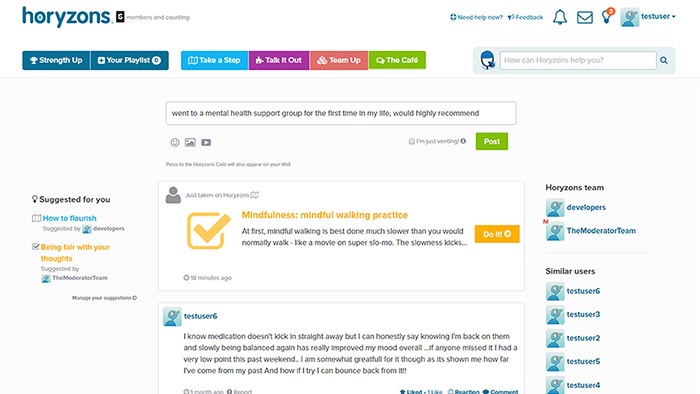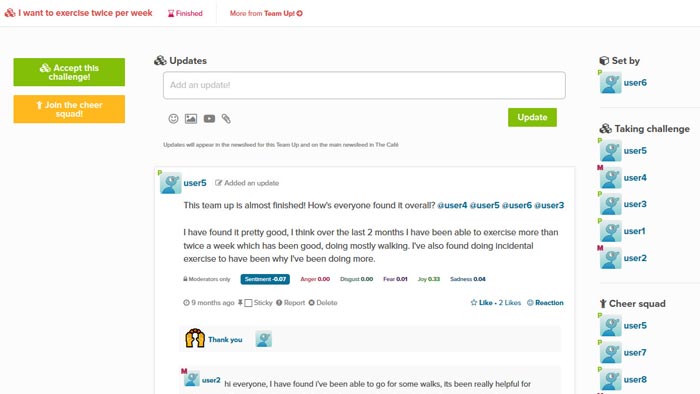Online social networking, digital mental health and COVID-19 - what helps and what hinders?
By Professor Reeva Lederman and Dr Simon D'Alfonso, School of Computing and Information Systems
Whilst COVID-19 is primarily a physical health issue, the mental health dimensions of this condition are also important. There is the general stress, anxiety and fear some might experience given the medical and societal effects of this outbreak. Secondly, the recommended social distancing and stay-at-home measures induce a new degree of social isolation, which can affect mental health. At the same time, face-to-face clinical therapy services may be restricted to limit potential exposure. In these difficult times, the use of digital mental health systems, particularly those available online and those incorporating a social element, can help to address these issues of mental health and social connection deprivation.
This article discusses mental health and wellbeing. If you or anyone you know needs help, please visit:
|
|---|
Recent years have seen the emergence of digital mental health care in a variety of forms. Traditional client-therapist sessions can now be conducted via telehealth sessions, with clients able to use online chat or videoconferencing platforms like Zoom and Skype to chat with their service providers. Although not a complete replacement for counselling with a human therapist, mental health apps, websites and chatbots offer a complementary or supplementary way to get help for mental health and wellbeing. The applicability of such digital mental health solutions to the current pandemic has been immediately recognised, and providers have noted that usage of their products has gone up.

It has been remarked that 'physical distancing', rather than 'social distancing', would be a more apt term to describe the precautionary practice introduced to reduce the spread of COVID-19. Indeed, modern Internet and web technologies, particularly social media, allow us to socially connect across distances, without the need for physical co-location. Whilst social media can stoke coronavirus anxieties and facilitate the spread of misinformation on the topic, we mustn’t forget that used appropriately, it can also provide social support and act as a crucial source of beneficial information.
In terms of digital mental health, several apps have been developed that specifically combine custom-built social networking with online mental health therapy options. Such a combination naturally addresses the challenges brought about by COVID-19. One example, which we have contributed to, is the Moderated Online Social Therapy (MOST) web platform developed at eOrygen, the digital division of the youth mental health organisation, Orygen. MOST integrates newsfeed-style social networking, mental health therapy modules and a specially structured problem-solving forum, all within a supportive clinical and peer moderated environment. The moderation is an important element of this digital intervention, allowing users to interact freely with the safety net of mental health personnel providing help as well as monitoring and flagging at risk interactions online.

The Moderated Online Social Therapy (MOST) news feed
Trials of MOST for conditions including depression, psychosis and social anxiety have found that it has the potential to provide more equitable access to psychological services, but also offers benefits that face-to-face services are unable provide. These include accessible 24/7 support, access to a rich library of state-of-the-art self-paced psychoeducational material, the chance to easily interact with a group of fellow participants with shared problems plus opportunities for anonymity and privacy which are not possible with face-to-face services.
In the near future, we are going to find many people looking to the Internet for psychological assistance. While MOST is still at a trial stage, it’s important to look for digital mental health options that have an evidence base. With mental health apps, it’s a case of caveat emptor or “let the buyer beware”. There are now thousands of mental health and wellbeing apps available, but many, possibly the majority, are produced for commercial gain, without an evidential basis, and can do more harm than good.

MOST provides the chance to easily interact with a group of fellow participants
In addition to apps, online communities and forums will also emerge during the current crisis, and isolated people will join them. For many there will be benefits in terms of feelings of group support. The problem with many of these forums, however, is that while they are often established by well-meaning individuals, they can have unintended consequences. Our research in online health communities has shown that participants expressing negative thoughts get more response and reinforcement than participants expressing positive thoughts. Furthermore, participants find it very difficult to judge the reliability of information posted by others and tend to believe postings that are expressed well, rather than logically assessing content. This allows for many people seeking help online to have their anxieties reinforced. Thus, it is important to choose online supports carefully and use services that are monitored by professionals and have been established by reputable institutions and organisations.
Resources to help support you
- Head to Health, an Australian Government Department of Health website to help you find the right digital mental health resources for your needs.
- PsyberGuide, a website that provides expert ratings for mental health apps.
- eMHPrac, a directory of Australian, evidence-based, free or low-cost, publicly funded digital mental health programs and resources.